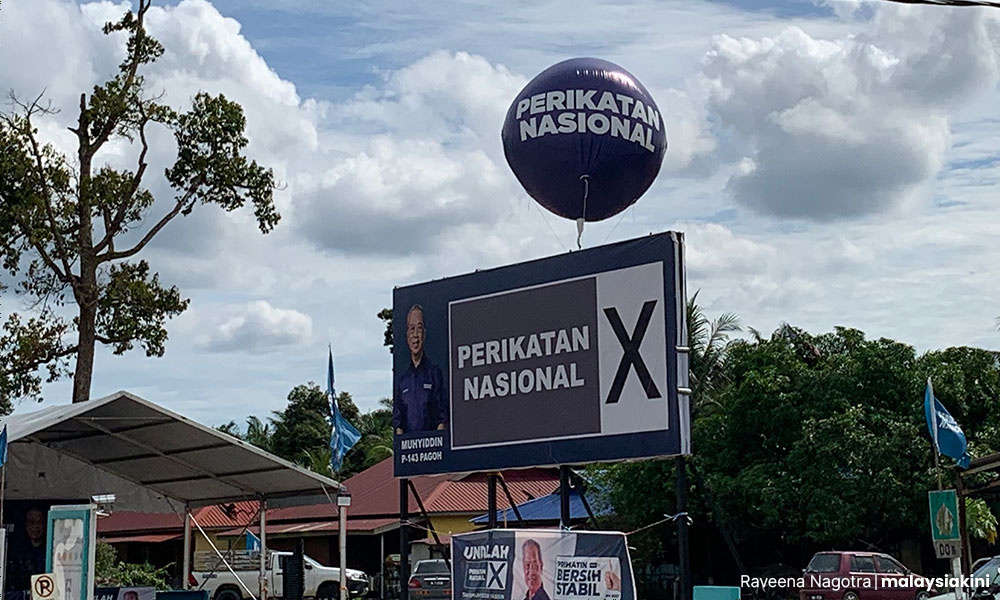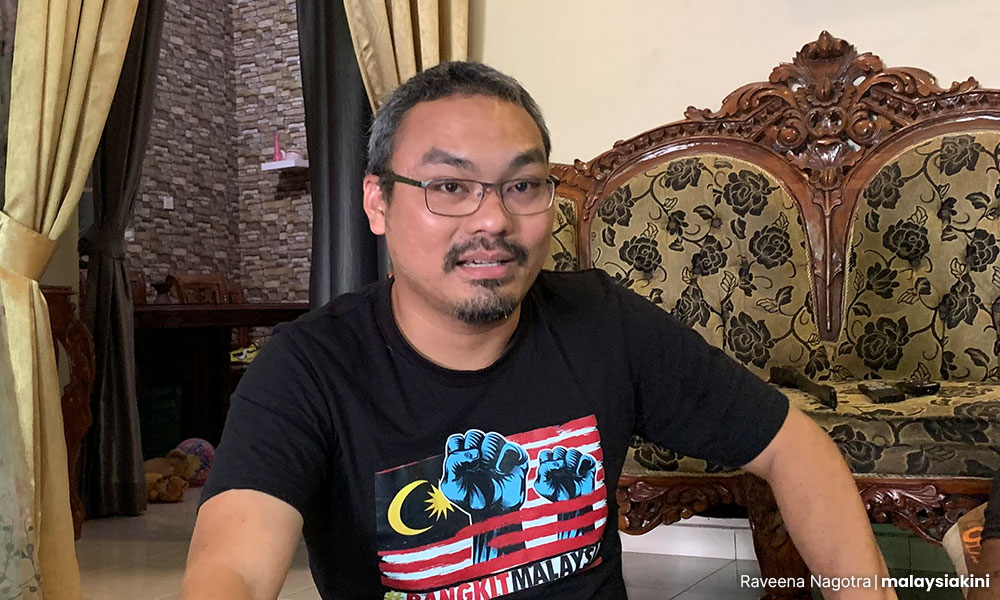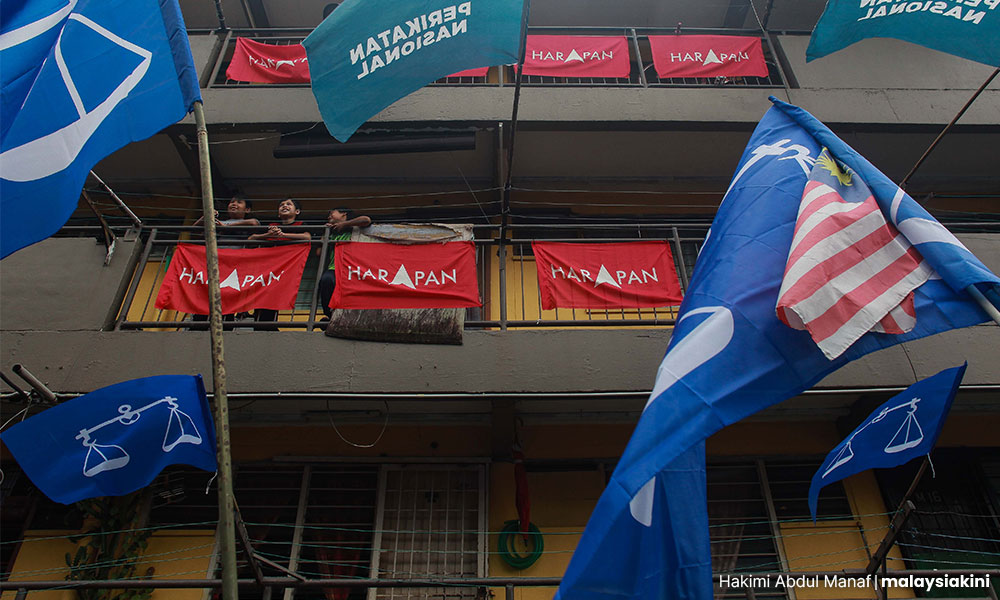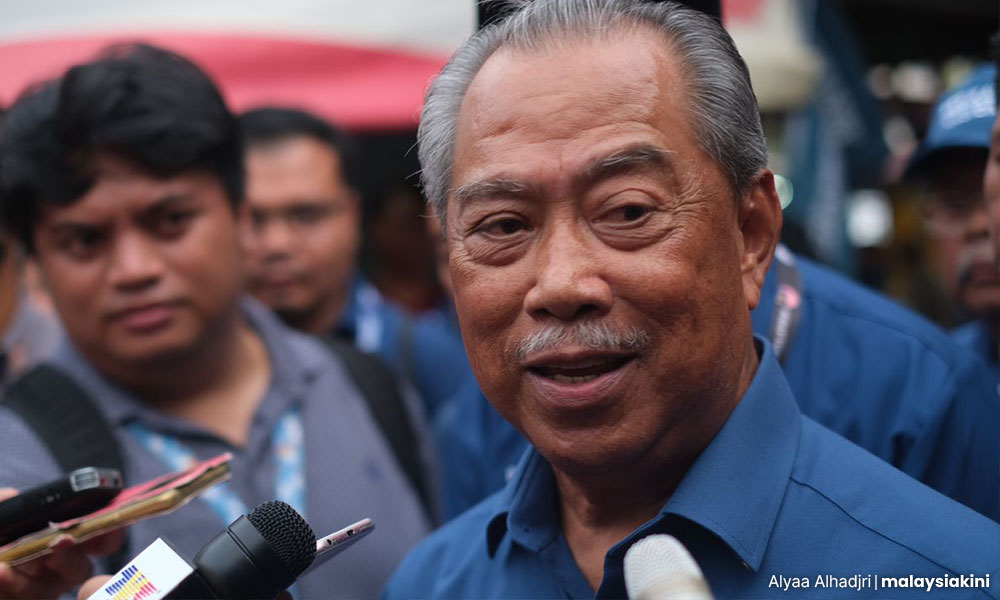GE15 | Since 1978, the Pagoh seat has been a relatively safe stronghold for its incumbent MP Muhyiddin Yassin, who has served eight terms there, with a two-term break from 1986 to 1995 when he was Johor menteri besar.
With Muhyiddin’s victories came the perception that Pagoh is a BN stronghold - but the incumbent proved this wrong when he won the seat again in 2018 under a Pakatan Harapan ticket with 55.2 percent of votes in a three-cornered fight.
Now contesting under the Perikatan Nasional banner, there is uncertainty about whether the coalition’s leader can convince loyal voters to stay by his side once again.
A major contributor to Muhyiddin holding on to his seat in 2018 was non-Malay support, which the Bersatu president is aware that he needs to maintain.
One such effort meant to court their votes was a small meet-and-greet with about 50 Indian voters at a curry house in Taman Pagoh Jaya a few days ago.
One of those in attendance was 56-year-old J Lakshmi, who told Malaysiakini during the event that she was among those who had been loyal to Muhyiddin over the decades.
“He has always helped us, gives us food. He even helps the needy,” she said.
However, upon further conversation, Lakshmi was shocked to discover that Muhyiddin was no longer contesting under Harapan and that Harapan had fielded its own candidate, Iskandar Shah Abdul Rahman.
This is despite the obvious Perikatan Nasional logo and Muhyiddin’s face on the banner placed at the front of the tent commemorating the occasion at the curry house.

“Oh,” she said, at a loss for words.
Asked if she would still choose Muhyiddin despite the change of parties, Lakshmi replied “We’ll see how,” but reiterated that she had always voted for Muhyiddin in the past.
READ MORE: Some still think I’m with Harapan, Muhyiddin with BN - Peja
However, other non-Malay voters who have kept up to date with the incumbent MP’s political allegiances are less forgiving.
At a barber shop in Bukit Pasir, a retiree who only wanted to be known as Koh made it clear that he would not be casting his vote for Muhyiddin, despite doing so previously.
For the Harapan supporter, choosing a party was more important than a candidate as it provided cohesion to voters, which would help the party gain power.
“If we choose people, it is only the individual (who gets) power and it is hard to fight against bigger powers. So individuals (alone) can do nothing. Because this is the politics of the nation, it needs the cohesion of the parties.
“Other advanced countries have always been like that. You can see most of the advanced countries also follow this rule.
“Therefore, the power of individuals is limited during the election. Even if you win, you can only serve your place and can’t do anything for the whole country,” Koh told Malaysiakini.
Greenhorn to needle Muhyiddin’s weakspot
Non-Malay support is largely expected to remain with Harapan, with BN communications director Ahmad Shabery Cheek also claiming that Muhyiddin was losing his popularity, particularly among Chinese voters.
Without support from the Chinese voters, Muhyiddin’s plan to retire after the next parliamentary term ends may start sooner than he would like.
It is a situation that Pagoh’s underdog, PKR candidate Iskandar Shah - who has no prior political experience compared to his rivals - seeks to make the most of.

About a year ago, the geophysicist went on a quest to study Pagoh’s voting data, by sourcing score sheets from the Election Commission (EC) and additional resources from political parties.
One thing Iskandar concluded was that Muhyiddin was not as strong as everyone expected him to be.
Elaborating, he claimed that Muhyiddin had only attained about 6,000 votes from BN in GE14 and won the seat by relying on non-Malay Harapan voters.
In 2018, 66 percent of the voters there were Malay, 30 percent Chinese and four percent Indian.
In the ballot box, 55.2 percent of votes went to Muhyiddin, 39 percent to BN and 5.8 percent to PAS.
Now, Pagoh has 69,939 registered voters, about 18,000 more compared to 2018.
Doing the math, Iskandar estimated that if he could secure at least 10 percent of the new voters as well as 10 percent of Malay votes, a marginal victory could be achieved - if BN could sap enough Malay support away from Muhyiddin.
However, this may be a difficult task.
Harapan’s dismal Malay support
During the Johor state election in March, Harapan only managed to secure a total of 18.8 percent of the votes in Pagoh’s two state seats - Bukit Pasir and Bukit Kepong - while BN had 37 percent of votes and PN led with 38.2 percent.
The dismal performance for Harapan is partly due to lower turnout, where Bukit Pasir had 500 fewer votes cast compared to 2018 and Bukit Kepong at 1,500 votes fewer votes, despite an increase in voters registered following the implementation of Undi18 and automatic voter registration.
At a small Harapan ceramah in Bukit Pasir on Monday night, headlined by DAP’s Teo Nie Ching, Malaysiakini spotted only a few Malays among the crowd of 120.

They mostly lingered in the back and declined to be interviewed.
One of them told Malaysiakini he was actually a Bersatu Pagoh committee member who was just checking things out.
“Why can’t I be here?” the man, who declined to be named, said curtly when asked what a PN supporter was doing at a Harapan ceramah.
The Bersatu Pagoh man said he had voted against Muhyiddin from 1995 to 2013, before supporting the incumbent in 2018.
Why he stopped supporting Harapan, however, appeared to be mainly because of DAP - which he accused of interfering with Muslim rights and propagating an LGBT agenda.
Muhyiddin’s base and PAS
Muhyiddin’s Bersatu followers appear to have mostly stayed intact after the Sheraton Move in 2020.
Besides Bersatu followers, Muhyiddin will benefit from PAS votes - of which there were 2,483 in 2018.
Muhyiddin may also find support among middle-class Malays, according to Serina Rahman, a lecturer in the Department of Southeast Asian Studies at the National University of Singapore.
She said this is because he seems to be a “cleaner” candidate compared to others, having previously stood up on the 1MDB issue, and that voters tend to favour candidates they are familiar with and not new faces who have never been present.
“But I don’t know enough about the other candidates to be able to say whether they have a chance or whether they can overpower him,” she added.
However, the Bersatu president will need to have more Malay votes than BN to survive.

One glimmer of possible hope for Muhyiddin is the rumoured disgruntlement among Pagoh Umno members.
This is after BN sidelined Pagoh Umno chief Ismail Mohamed - Muhyiddin’s former right-hand man - and fielded former Muar MP Razali Ibrahim in the seat instead.
When contacted, Ismail - who contested in Pagoh in 2018 - denied any rifts within Pagoh Umno.
“That’s not true. Everyone has accepted (the candidacy) openly and there has been no issue. The grassroots have not protested, it is okay,” he told Malaysiakini.
If protests against Razali do not materialise, Harapan’s Iskandar estimates that Umno-BN may have at least 15,000 votes in the bag, which he hopes will deny Muhyiddin a win.
However, for the PKR candidate, there is another obstacle he must overcome if he is to have any chance of winning Pagoh.
While Iskandar aims to win 70 percent of non-Malay voters, this would rely heavily on the turnout.
“These people will support us if they go out (to vote). But it is not a priority for them.
“The question is if they would vote. However, the sentiment is very strong. Even 70 percent of Chinese votes will be good enough for me,” Iskandar told Malaysiakini when met during his campaign trail in Bukit Pasir. - Mkini



No comments:
Post a Comment
Note: Only a member of this blog may post a comment.